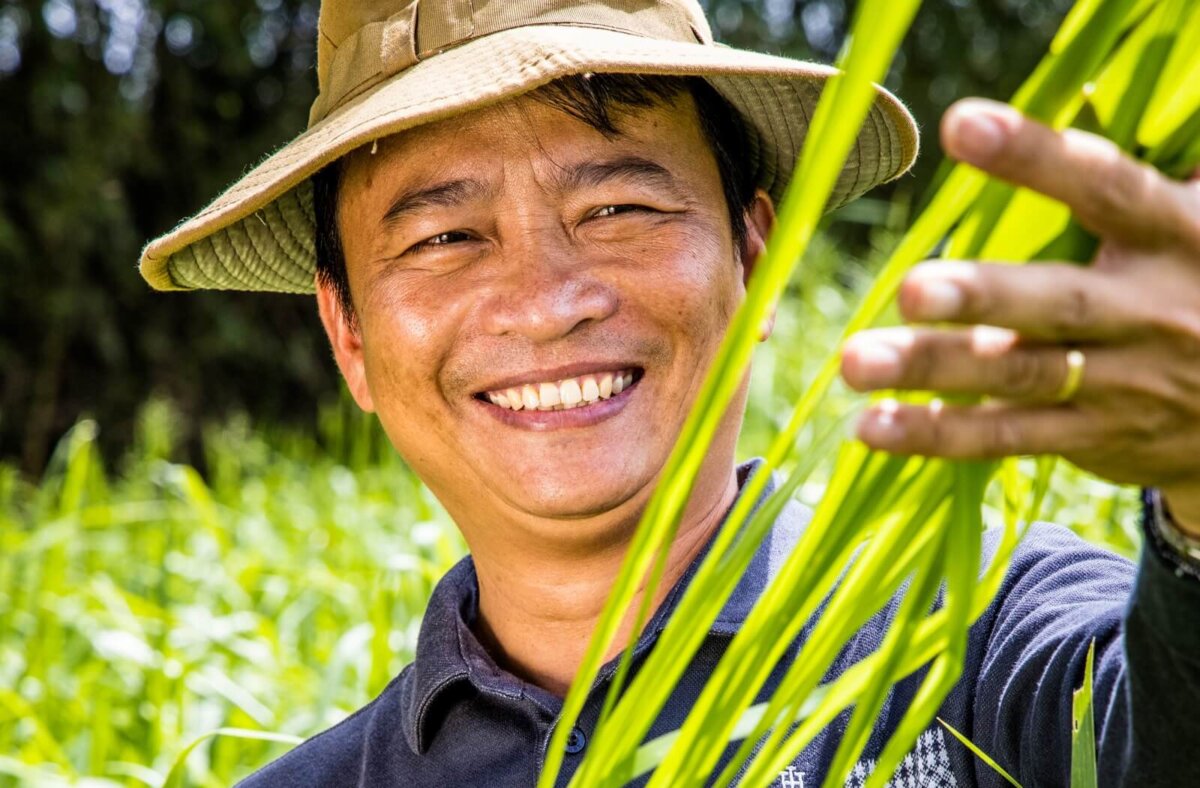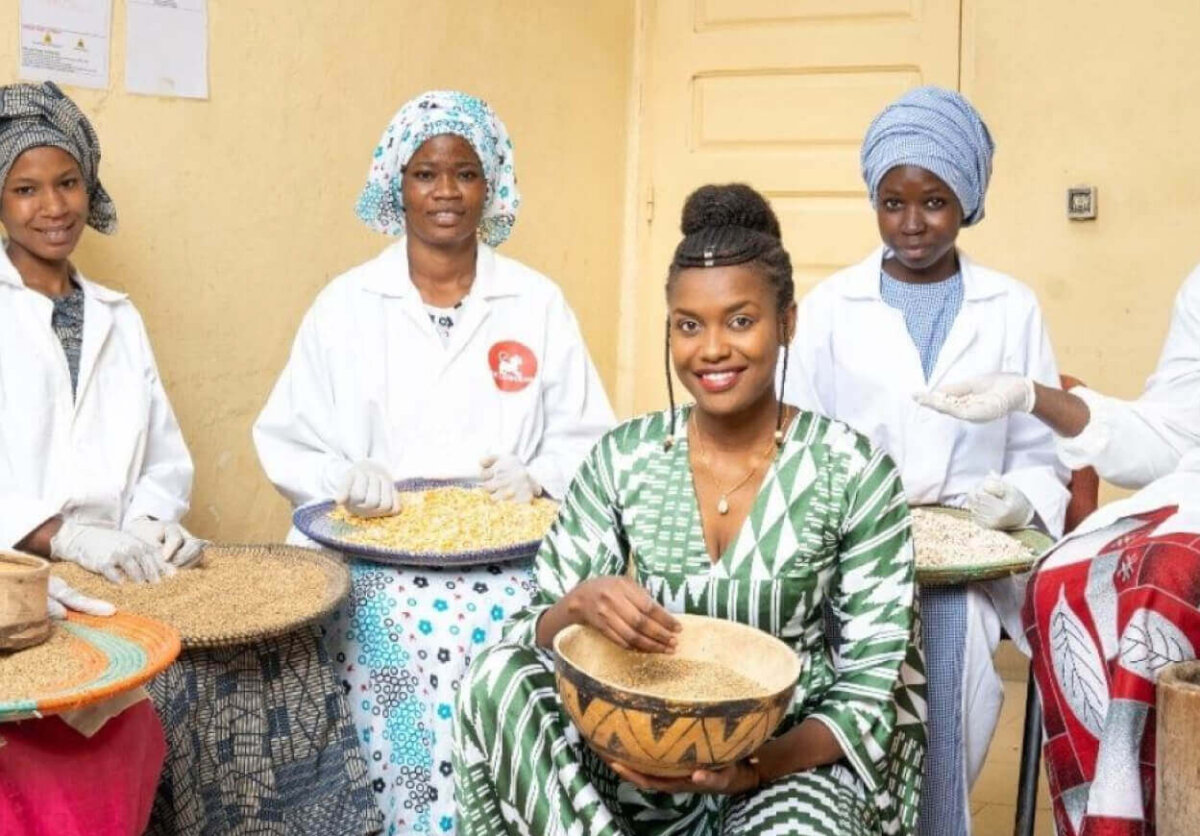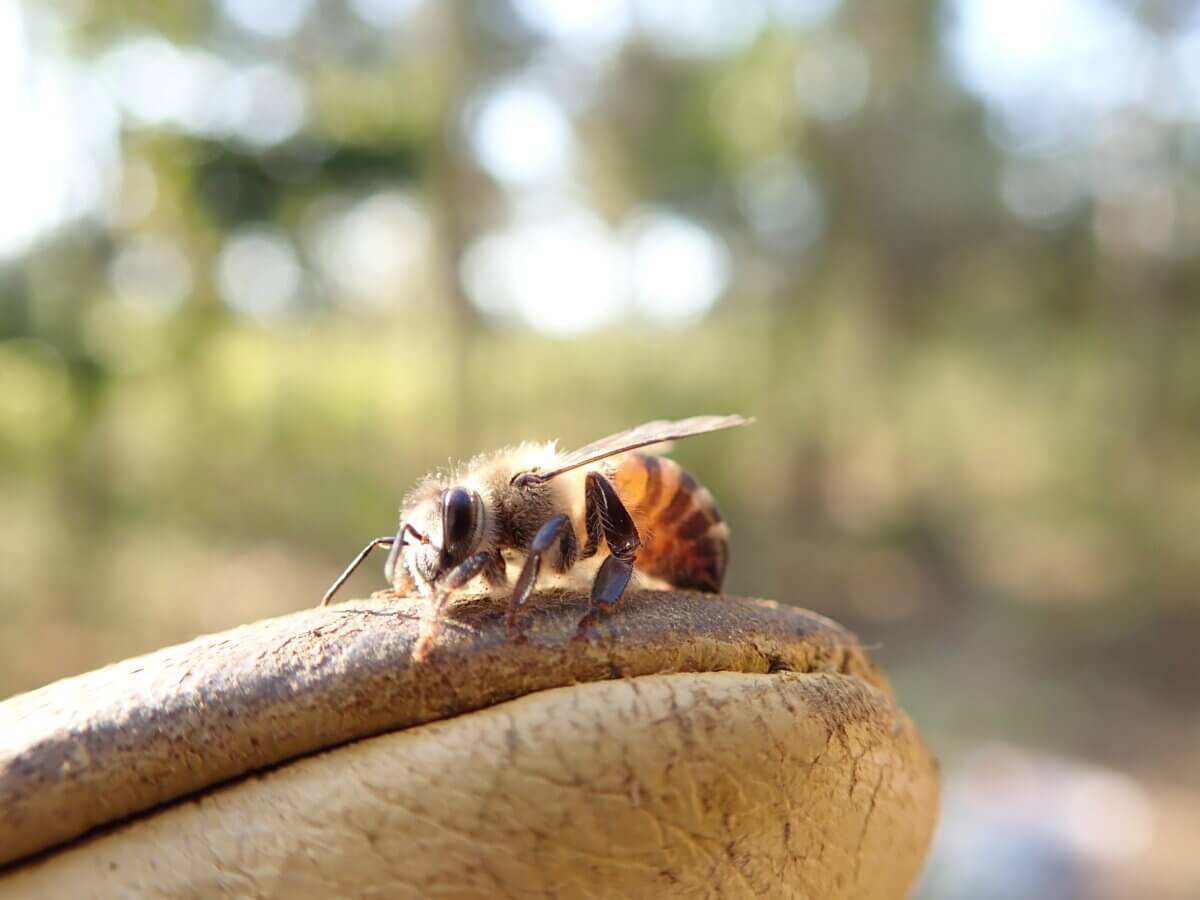- Projects
- Turning waste to value in Ivory Coast

LONO, based in Ivory Coast, strives for clean and innovative waste solutions and technologies for rural development. To tackle the overwhelming issue of water hyacinths, they collaborated with PUM to develop methods for harvesting the plants and using them as biomass for compost production. The ecological and social impact for the community are highly positive.
Founded in 2016 in Yamoussoukro, Ivory Coast, LONO operates with the conviction that all communities should benefit from innovation and technology. They believe that with sufficient effort, existing solutions can be adapted to fit local context. LONO’s mission is to offer sustainable and affordable solutions to transform waste into value. To achieve this, they offer services and products that support farmers, agro-industries, companies and organisations to make the most of their waste. LONO also offers advice and executes studies in the field of renewable energy, biomass, biofuels, agriculture and development impact.
Tackling the water hyacinth burden
In and around the city of Yamoussoukro in Ivory Coast several lakes are heavily overgrown with an invasive species: water hyacinth. Although it is a plant with beautiful flowers, water hyacinth is an aquatic weed that originated in the Amazon Basin. It has become one of the world’s most difficult waterweeds to control, spreading rapidly across Latin America, the Caribbean, Africa, Southeast Asia, and the Pacific. When not effectively controlled, water hyacinth covers lakes, rivers, and ponds entirely, impacting water flow, blocking sunlight from reaching native aquatic plants, and reducing dissolved oxygen which leads to a significant decline in fish stocks. The plants reappear just as quickly as they vanish. To address this pressing issue, LONO approached PUM to collaborate on developing a plan for managing this water hyacinth issue.
The project assessed different lakes in terms of their potential for water hyacinth harvesting. Each lake presented unique challenges, such as varying levels of accessibility, different plant compositions, maturity of the plants, and the proportion of free-floating versus rooted plans. Various harvesting methods were considered, including manual hand-pulling, using canoes or boats, and mechanical techniques such as dredging from the shore or using mowing boats and weed harvesters. A decision matrix was created to guide the selection of the most appropriate equipment for each situation.
The harvested plants will be processed at an existing biomass facility. The plants can be valorised through the production of biochar or biomass. This enhances the fertilisation of soils used for production by farm cooperatives and individuals.
Interested in this project? Get in touch with
Hervé Touan
Representative Ivory Coast, Abidjan






